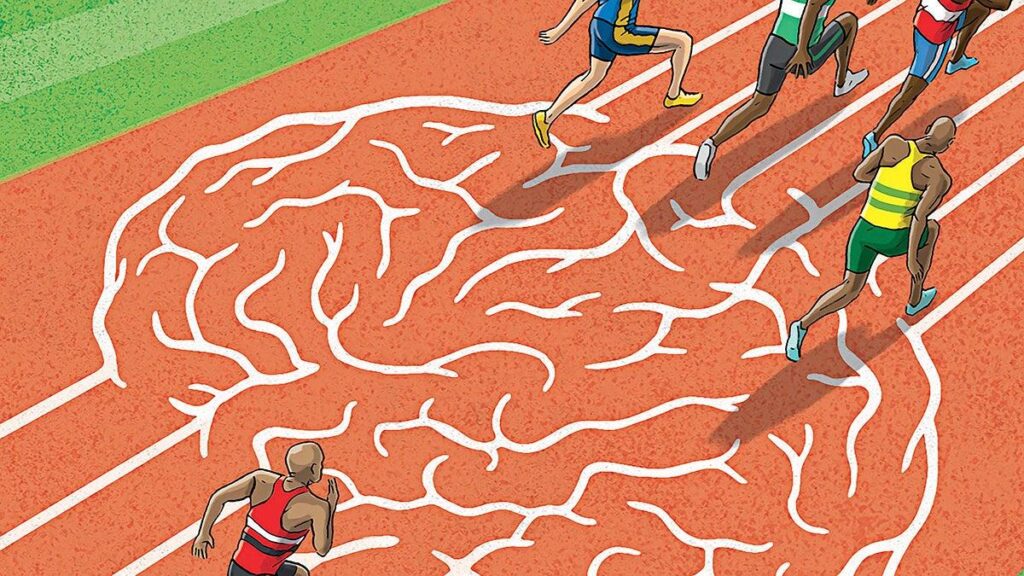In recent years, the conversation around athletes’ well-being has expanded beyond physical injuries to encompass mental health, a shift experts say is crucial for saving lives. This article explores the growing consensus that mental health care for athletes deserves the same urgency and resources as treatment for physical conditions. Highlighting personal stories, expert insights, and emerging initiatives, we examine why addressing mental health openly and proactively could transform sports culture and safeguard athletes at all levels.
The Urgent Need to Prioritize Mental Health in Sports
Athletes face immense pressure that often remains invisible to fans and even coaches. The relentless pursuit of victory, coupled with public scrutiny and high expectations, can take a significant toll on their mental well-being. Despite the physical demands being well-addressed, mental health challenges frequently go unnoticed or stigmatized, leading to burnout, anxiety, depression, and, in some tragic cases, life-threatening consequences. Recognizing mental health as equally critical ensures athletes receive the comprehensive care necessary to sustain both their careers and overall quality of life.
Sports organizations, teams, and medical staff must implement proactive strategies to support mental wellness, such as:
- Routine mental health screenings alongside physical checkups
- Access to licensed sports psychologists and counselors
- Educational programs to destigmatize mental health challenges
- Development of clear protocols for crisis situations
Integrating these measures transforms the culture around athlete care, emphasizing prevention before crisis. Below is a brief comparison outlining current gaps and proposed solutions:
| Aspect | Current Reality | Recommended Approach |
|---|---|---|
| Screenings | Periodic physical exams only | Include regular mental health assessments |
| Support Team | Focus on physical trainers and doctors | Integrated care with mental health professionals |
| Education | Limited awareness programs | Mandatory mental health training for staff and athletes |
| Stigma | Often ignored or hidden | Open dialogue encouraged and normalized |
Breaking the Stigma Surrounding Athletes’ Emotional Well-being
The conversation around athletes’ emotional well-being needs to evolve beyond fleeting mentions and obligatory nods. Just as physical injuries demand immediate attention, mental health struggles deserve proactive care and open dialogue. Many athletes silently wrestle with anxiety, depression, and burnout, often feeling isolated due to the persistent culture of toughness ingrained in sports. By normalizing mental health conversations, sports organizations and fans alike can foster an environment where seeking help is seen as a strength rather than a weakness.
Key areas where change is urgently needed include:
- Education: Introducing mental wellness training for athletes, coaches, and support staff.
- Access: Ensuring confidential and ongoing psychological services are as accessible as physical therapy.
- Integration: Embedding mental health professionals within sports teams to provide consistent support.
A recent study highlights these benefits through a simple comparison:
| Mental Health Intervention | Impact on Athlete Recovery |
|---|---|
| Regular Counseling Sessions | 50% Reduction in Performance Anxiety |
| Peer Support Groups | 35% Improvement in Emotional Resilience |
| 24/7 Helpline Access | 30% Decrease in Crisis Incidents |
Integrating Mental Health Support into Athletic Training Programs
Mental health resources must become an integral part of athletic training to foster resilience and overall wellbeing among athletes. Traditionally, physical conditioning and injury prevention have dominated athletic programs, yet mental health is equally crucial to performance and long-term success. Embedding licensed counselors and psychologists within sports teams enables early identification of stress, anxiety, and depression, conditions that often go unnoticed behind the drive to compete. This proactive approach not only mitigates risks but also enhances focus, motivation, and recovery – transforming how sports institutions prioritize their athletes’ health.
Implementing comprehensive mental health initiatives involves several key components:
- Regular mental health screenings and wellness check-ins
- Education sessions destigmatizing psychological challenges
- Accessible crisis intervention protocols
- Collaboration between coaches, trainers, and mental health professionals
Evidence from pilot programs illustrates profound benefits, as summarized below:
| Program Aspect | Impact on Athletes |
|---|---|
| Routine Mental Health Screenings | 30% early detection of psychological distress |
| On-site Counseling Access | 40% reduction in drop-out rates |
| Stress Management Workshops | 25% improvement in performance consistency |
Policy Changes Required to Ensure Comprehensive Athlete Care
To truly prioritize athlete mental health, sports organizations must establish policies that mandate routine mental health screenings alongside physical check-ups. This includes integrating licensed mental health professionals into athletic departments with equal standing as physical trainers and medical staff. Additionally, organizations should implement confidential reporting channels where athletes can seek help without fear of repercussion or stigma. Funding allocations must also be adjusted to support these expanded services, recognizing mental health care as essential rather than optional.
Beyond health services, policy frameworks should incorporate comprehensive education for coaches, trainers, and athletes about mental wellness and its impact on performance. This can be achieved through mandatory workshops and continuous training programs. Below is a simple outline of essential policy components proposed to ensure holistic athlete care:
| Policy Component | Purpose | Implementation Example |
|---|---|---|
| Regular Mental Health Screening | Early detection and intervention | Mandatory quarterly psychological evaluations |
| Confidential Support Systems | Encourage help-seeking behavior | Anonymous helpline and online chat services |
| Education & Training | Reduce stigma; increase awareness | Annual mental health workshops for staff and players |
Closing Remarks
In recognizing mental health as an integral component of athletes’ overall well-being, the sports community has the opportunity to foster a culture that prioritizes care and support on par with physical injury treatment. As this conversation gains momentum, it becomes clear that addressing mental health openly and proactively is not just beneficial-it can be lifesaving. Moving forward, adopting comprehensive strategies that treat mental and physical health with equal seriousness will be essential in protecting athletes and ensuring their long-term success both on and off the field.





